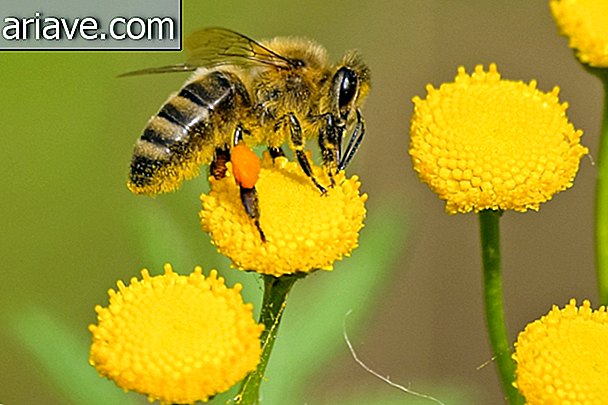“Open sewage”: this is how Guanabara Bay was described in the US
The Olympic Games in Rio de Janeiro are about to begin and, as you may know, one of the most discussed points since the city began preparing for the event was pollution in Guanabara Bay - which will be the scene of sailing competitions. A few days after the party began, the US newspaper The New York Times published an article comparing the locality of Rio de Janeiro to an "open sewage". Keyed up.

According to Jules Boykoff, a professor of political science at the University of the Pacific and author of the article, the strong smell can be felt as visitors land at Galeão, the Marvelous City's international airport.
The unpleasant odor comes from Guanabara Bay, described by the teacher as basically a muddy, smelly brown broth with PET bottles, plastic bags and dead rats. Also according to Jules, underneath all this junk, there is a cocktail of viruses and drug-resistant superbugs.
Disgusting
According to the article, nearly 640 million liters of untreated sewage is dumped daily into the bay, and there is serious concern about how this contaminated water could affect athletes competing there. The publication also points out that the problem is not only limited to sporting events, since the population of Rio de Janeiro is forced to live with all this dirt.

The funny thing, as Jules points out, is that things should be quite different in Rio de Janeiro, considering that the city has hosted several international environmental events, such as the 1992 United Nations Conference on Environment and Development, and Rio +20 - United Nations Conference on Sustainable Development - in 2012.

In addition, when the city was elected host of the 2016 Olympics, one of the organizers' promises was to improve the air and water quality of the state capital. In the signed documents, the authorities pledged to treat 80% of Guanabara Bay sewage by this year - but the completion of operations would have recently been extended to 2035.
Olympic Contamination
According to Jules, a report revealed that ingesting only three teaspoons of water from the bay offers a 99% chance of contracting viral infections - although the different levels of population immunity mean who not all who come in contact with the disease. water get sick.

Sailors, swimmers and paddlers who venture into Guanabara Bay could, for example, get hepatitis A, and may be subject to respiratory and digestive disorders that could lead to more serious problems affecting organs such as the brain and heart. An Associated Press journalist has even claimed that what is happening is an environmental crime - and Brazilian authorities are organizing an Olympics there.

At least, according to Jules, athletes who will compete in the dirty waters of the bay will be able to (partially) protect themselves with all kinds of technology. Cariocas have no choice, and, according to Jules, doctors treating the needy population estimate that 40 percent of the illnesses they suffer are the result of contact with untreated sewage. And the teacher explains that the problem is not only limited to Rio de Janeiro not.
National problem
According to Jules, two-thirds of hospitalizations occurring in the country are associated with waterborne diseases. Children, because of their lack of antibodies, are the most vulnerable, so much so that The Lancet, a prestigious medical journal, has revealed that diarrhea and related complications are the second leading cause of death among children under 5 - keeping more than that malaria, measles and AIDS combined.

In addition, health problems caused by water contamination still lead to lack of school attendance, which can affect children's intellectual development. Jules also cited a study that found that adults who grew up without access to sewage systems earn about 10% lower wages than adults who grew up in families of the same economic power but had sanitation.

Returning to Rio, Jules says in his article that the Olympics should have changed this picture, at least in the state capital. The commitment involved installing sewerage systems in the favelas, improving public lighting and water supply and paving the roads, and Marvelous City Mayor Eduardo Paes himself said in 2012 that by 2020 he had the goal of completely urbanizing all the carioca slums.

After being reelected in 2012, Paes canceled the program - called Morar Carioca - and claimed that the initiative was not even part of the Olympic legacy. The fact is that, for a change, the situation in Guanabara Bay has not been resolved, the mayor of Rio admitted that the depollution was a failure and the carioca population, especially the poor, will continue to suffer from the problem.
***
Well, Jules Boykoff may be a professor of political science and stuff, but he certainly doesn't know how Brazilian politicians understand the concept of “promise”!











